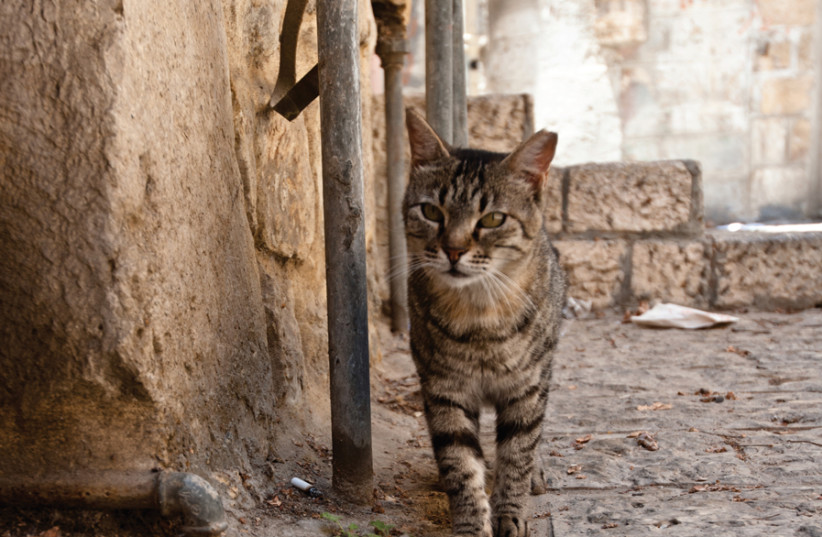In the summer you can go to the beach, sunbathe, wear short clothes and enjoy the sun and the warm air. Just as we have to be careful of the many dangers that lie in the hottest season of the year, we need to make sure we are taking care of our cats.
Veterinarian Dr. David Rosenblatt of Biopet explains how to best take care of your cat in the summer months and what you should look out for.
Heat stroke and dehydration in cats in the summer
These two fatal problems are different and do not necessarily occur at the same time. Heat stroke occurs when the cat can't maintain its normal body temperature. Cats don't sweat, and their way of cooling down is by slowly breathing with their tongue sticking out.
It is important to allow the cat access to a shaded and ventilated place. Also, never leave your cat in a closed vehicle, even for a few minutes. Heat stroke develops quickly and can quickly become fatal. If your cat gets a heatstroke, cool it down with water and take it to the veterinary clinic immediately.
Dehydration, on the other hand, occurs when the cat does not have enough fluids. If you have to leave the cat alone at home, it is important to prevent dehydration. Be sure to give your cat access to some alternative water sources, ask a neighbor or a friend to check from time to time if they have enough water, or install an automatic dispenser that is connected to the main water line and refills itself.

Signs of dehydration include apathy, sunken eyes, and lack of elasticity of the skin in the nape area (lift the skin and let it go. The skin should immediately return to its previous state. If it remains standing, the animal is dehydrated).
In case of dehydration, the cat should be taken urgently to the vet for a fluid infusion.
You should also consider helping street cats in your area and give them food and water in a shaded area.
External parasites
Summer is the season of fleas and ticks. There is good reason to exterminate these parasites, and it goes beyond them simply being disgusting and annoying.
Fleas transmit tapeworms and cause severe skin allergies, and ticks can transmit life-threatening diseases. The correct approach to solving the problem is not only to get flea and tick treatment at a pet store but to consult with the veterinarian about the most correct prevention plan.
Snakes
Summer is also when snakes are the most active, especially the poisonous vipers found in Israel.
Aside from taking normal precautions such as getting rid of weeds and having a cat, you should learn what to do if your cat gets bitten.
If this happens, get to the veterinarian immediately, even if the cat seems fine. The most obvious signs of a snake bite are sudden swelling and severe pain, most commonly in the limbs or face.
Early medical intervention could save your cat's life.
Haircut
Long-haired cats need a solution for the summer. First, try consulting with a local cat groomer. If a haircut is not possible, brush your cat often.
You should not try to trim the cat's fur alone as it is easy to accidentally injure the cat's skin.
Food
Don't let the weather confuse you! Cats need more food in the summer when it's hot outside because they spend a lot of energy cooling their bodies. This is also true in winter, but it is even more important in summer.
Many people think that it is just the opposite and that the pet eats less in the summer. We're under this impression because cats do not like to eat when they are hot and prefer to eat at night. Of course, this may be different for a cat living inside an air-conditioned house.
Vacation
Everyone travels in the summer, and it's not easy when you have a cat.
Try to reserve a good cat hotel ahead of time, and consult with the veterinarian beforehand. A proper cat hotel will require that the cat be vaccinated and treated against parasites, and if it does not, you should probably rethink whether you chose the right place.
Alternatively, you could arrange for a catsitter to take care of the cat during your trip. If so, it's better if the sitter comes to your home because cats do not like to move from place to place.
Feline sex drive
Cats have a seasonal sexual cycle that is affected by the length of the day. A cat's heat season starts in the spring and lasts all summer.
The right thing to do is to spay or neuter your cat before they go into heat.
